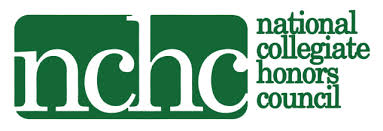TB to COVID-19: What is Health?
Seminar - UHON 301
Instructor(s): Amy Farnbach Pearson
Course Description
What does it mean to be sick? What does it mean to be healthy? “I should like to die of a consumption,” Lord Byron reportedly said, “Because the ladies would all say … ‘How interesting he looks in dying!’” From TB among the Romantic poets and before to today’s COVID-19 pandemic, western society has defined and re-defined what illness is and what it means, how to prevent it, and how to treat it. In this seminar, we will discuss portrayals of ill people in fiction and non-fiction from the 19th century to the present, as well as public and scientific conceptions and misconceptions of specific diseases. What has been the impact of these ideas on our experiences today? By examining the interactions between social and scientific ideas about health in the past and present, TB to COVID-19 will use historical and anthropological approaches to explore how we talk about health, how it has been shaped by our cultural past, and how it affects modern health care and health disparities.
Texts
A combination of theory and primary texts, including Victorian to contemporary medical writing and depictions of illness in news media, novels and film. For example:
Crawford, Robert. 1994. “The Boundaries of the Self and the Unhealthy Other: Reflections on Health, Culture and Aids.” Social Science and Medicine 38 (10): 1347–65.
Link, Bruce G, and Jo C Phelan. 2001. “Conceptualizing Stigma.” Annual Review of Sociology 27 363–85.
Mearns, Andrew. 1883. The Bitter Cry of Outcast London. London: James Clarke & Co.
Sontag, Susan. 1978. Illness as Metaphor. New York: Farrar, Straus, and Giroux.
Requirements
In addition to preparation for and participation in class, students will complete brief oral and written assignments – including memes, infographics and lightning talks – and analyze and lead class discussion on a film depiction of illness. Using a project management approach, students will develop their own project plans and midsemester checkpoints to develop a 2,500-word paper analyzing the cultural constructs surrounding a disease significant in a culture of their choice.
About the Instructor(s): Amy Farnbach Pearson
Amy Farnbach Pearson received her PhD in Anthropology from Arizona State University. She is a historical and medical anthropologist specializing in the social construction of medical knowledge and practice. Her research examines sociocultural influences on western medical concepts of health and disease, doctor-patient interactions, and quality of care; her dissertation focused on the diagnosis and treatment of tuberculosis in nineteenth-century Scottish charitable hospitals.



Social Media
For news, information, prizes and more fun stuff follow us on our social media!
Honors College Resources